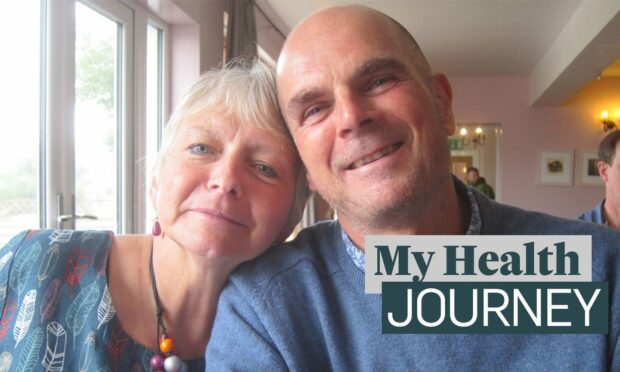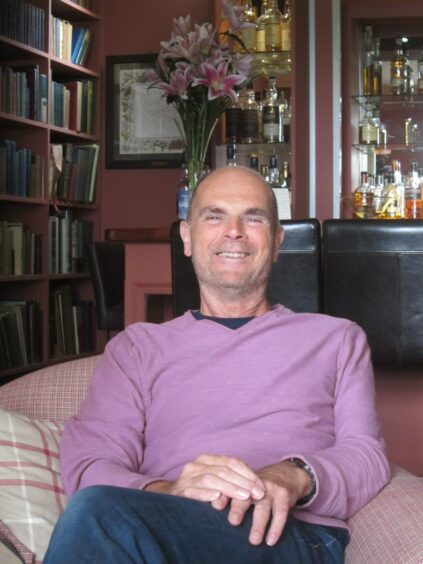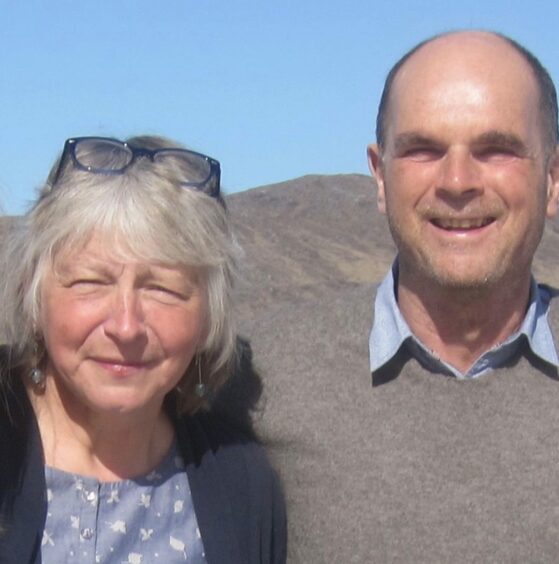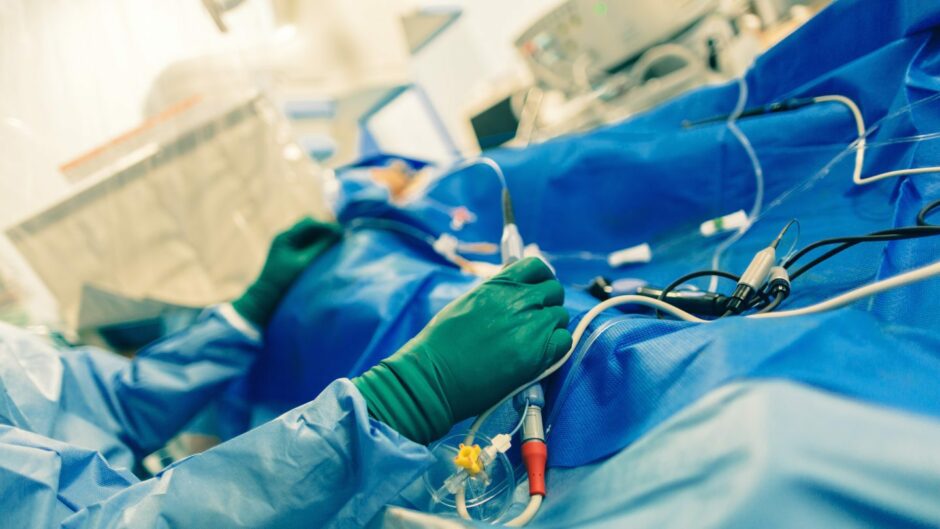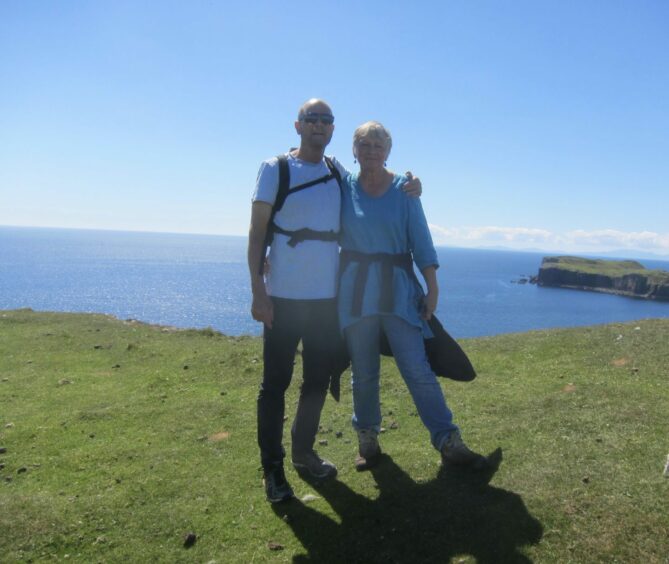Looking back, David Porter says his decision to undergo heart surgery without a general anaesthetic was a “grown-up choice”.
The consultant warned him it could hurt.
But the 68-year-old had already spent 12 months waiting for an operation because of what he was told was a lack of anaesthetists.
Searching for alternatives, the retired science teacher then living on Skye was offered the chance to have the operation all the way across the country at Aberdeen Royal Infirmary.
However, it would be under sedation instead of a full anaesthetic. If he didn’t take it, he may have to wait another 12 months.
And David – a fit 68-year-old – was keen to get back to his fell running back home.
“I think [the consultant] said I would be okay to do the operation by sedation because he was expecting it to be quite quick,” David says.
“It didn’t turn out that way.”
‘It was extremely painful and extremely traumatic’
David’s operation was a cryoablation, performed to fix his irregular heartbeat that had been causing him problems for the past 12 months.
Even though the operation was on his heart, cryoablation is not invasive – a catheter is inserted in the thigh and a wire is maneuvered up to the organ.
One in five are done without a general anaesthetic, according to NHS Grampian, and are completed in a short time.
The procedure freezes tissue on the heart to halt the irregular beat, a process that is normally a bit uncomfortable but generally painless.
In David’s case, however, once the operation was underway, the surgeon found more tissue to treat. Suddenly, a routine operation became more complex.
For David, who despite the sedation could feel operation taking place inside him, the news that the operation would be extended came as a shock.
“It was extremely painful and extremely traumatic,” David says.
“I was sedated so I was a bit away with the fairies. But not enough not to feel all the pain as they rummaged around inside my heart.”
In the end, the operation took two hours. David still vividly recalls the relief he felt when the surgeon started on the last incision.
“He said to me, there’s just one more [ablation] to do,” says David. “When he finished that I felt such… it was just ‘Oh, my goodness me’.”
A surprising twist
Six months on from the experience, David remains shaken by what happened that day. He has flashbacks to the pain, and is concerned he might have PTSD.
His wife, Jayne Cooke, believes his behaviour has changed since the operation.
She also recalls the long journey home from Aberdeen to Skye. The couple ended up staying two nights in Inverness because David couldn’t face the trip back.
In all, it was a horrifying few days. However, perhaps surprisingly, the former teacher – who recently moved with Jayne from Waternish on Skye to a new home on North Uist – does not blame anyone for what happened.
He says he has nothing but admiration for the medical staff that treated him, and for those that helped in his recuperation.
His issue is with what he sees as the ongoing underfunding of the NHS that forced him into an impossible position – choose to have the treatment without an attendant anaesthetist or risk another 12 months living with a potentially dangerous heart condition.
“It was nobody’s fault,” admits David. “The surgeon was trying his best to help out patients who would otherwise have to wait a lot longer. I doubt he’d ever want to do it by sedation, but it’s the only way he can do it.
“It comes back to NHS shortages. That’s the crux of just about every problem in the NHS, isn’t it? It’s underfunding.”
NHS Grampian response
A spokesperson for NHS Grampian said cryoablation is a long procedure and can be uncomfortable but that consultant and patients would reach a decision on the best way to proceed in each individual case.
“Patients waits are affected by clinical need – some patients are seen within 1-2 months,” the spokesperson added.
“Wait times for the procedure under sedation are around six months if non-urgent. Those waiting for a general anaesthetic are waiting on average around 12 months – but again this varies depending on clinical need, with some waiting longer.
“If performed under sedation and a complication occurs general anaesthetic can be required and will be available.”
Up to one million operations a year delayed because of anaesthetist shortages
A key component of those wait times is the UK’s severe shortage of anaesthetists. According to the Royal College of Anaesthetists, the country has a 14% shortfall, equal to 1,400 roles.
Because of this, up to one million operations may be delayed every year, the group estimates.
Many factors are behind the anaesthetist shortage.
Brexit has cut off the supply of specialists from Europe while Britain’s aging population has increased demand for operations across the board.
The problem is only set to get worse as older anaesthetists retire and are not replaced by a new generation.
By 2040, the Association of Anaesthetists predicts the UK will have a shortfall of 11,300 roles.
For Jayne and David, who are both ardent supporters of the NHS, it is a heartbreaking situation.
“We need to fight for the NHS,” says Jayne. “It’s such a worthwhile ideal to uphold, and it did used to be the envy of the world. We need to return it to that.”
A complicated relationship with his ordeal
David is continuing his recovery back home on North Uist.
He has yet to return to fell running, but for now is content with long walks on the beach with the dog.
“I have a very relaxing time,” he says.
His mind does occasionally drift back to that day in ARI, though his thoughts about what happened are complicated.
On one hand, the pain was traumatic. But on the other, the operation has fixed his heart issues.
Despite everything, he’d choose to do it again.
“When I look back on the day, it was pretty horrific,” David says.
“But you could go for that operation again and the surgeon could whip in, see what was wrong and bang, bang you’re out.
“It was just the circumstances were such that it was actually more traumatic because it was more complex than anybody was expecting.”
